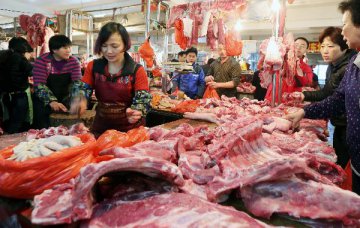
A collapse in the Chinese pig population will boost pork prices, but investors in the world’s largest pork producer have gotten carried away.
The Year of the Pig—this year, according to Chinese zodiac—is not shaping up well for pigs in China, as the deadly African swine fever has swept across the country. Pork will become more expensive across the world, but a bet on the world’s largest producer still looks risky.
China, which produced and consumed around half of the world’s pork last year, could face a shortage of the meat because of the disease, which is highly infectious but harmless to humans.
Since the first reported outbreak in August, China has culled roughly one million pigs, according to the Food and Agriculture Organization of the United Nations. The actual figure is likely to be much higher because farmers lack incentives to report outbreaks. Many farmers have also chosen to slaughter their healthy pigs and process their meat without replacing them, in case they get infected.
China’s pig population in February was 17% lower than the year before, according to the government—a decline almost equal to the total number of pigs in U.S. farms. The population of breeding sows has fallen even faster, down almost 20%. This means pork production in China may not be able to pick up quickly even if the government gets the disease under control. Chinese pork production could fall 25% to 35% this year, figures Pan Chenjun, senior analyst at Rabobank.
U.S. pork exports to China and Hong Kong fell 21% in 2018, according to the U.S. Meat Export Federation, after China slapped retaliatory tariffs of up to 70% on the meat. But faced with the shortage, China may have no choice but to import much more pork, even from the U.S. Hog futures traded on the Chicago Mercantile Exchange have surged nearly 50% in the past month amid expectations that China will push up pork prices in the U.S.
Investors have also driven the share price of Hong Kong-listed global pork giant WH Group up almost 50% this year on rising prices as well as hopes of a China-U.S. trade deal. The main rationale for WH’s 2013 purchase of Smithfield Foods, the largest U.S. pork producer, was to export hogs from the U.S. to China.
But the market risks overplaying the theme. U.S. exports still account for only a fraction of WH’s business. And while higher prices will boost WH’s fresh pork business, it will hurt its packaged-meat unit, which made up 94% of operating profit last year.
Investors may need to wait for a better entry point if they want to bring home the bacon.
Source: The Wall Street Journal




















Latest comments